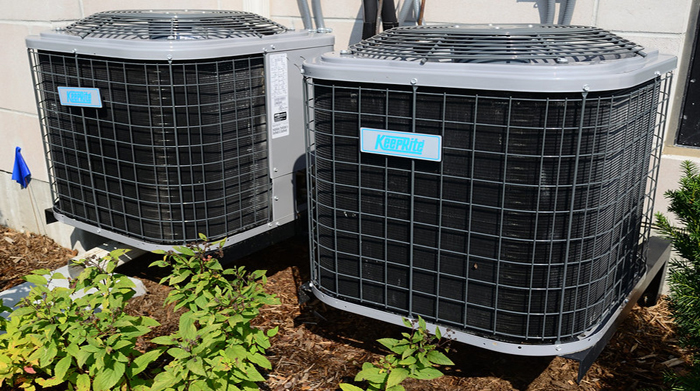How Does Increased Air Conditioning Use Impact the Grid?

Image courtesy of Open Grid Scheduler / Grid Engine under Public Domain, resized to 700 x 391 pixels.
More and more people in the U.S. are using air conditioning on a regular basis. The first commercially available residential air conditioning window units became available in the 1930s, and it didn’t take long before central AC systems started to become popular. Today, a whopping 90% of U.S. households use air conditioning, compared to 68% in 1993. And 75% of current AC systems are central.
Given that the population is growing, not shrinking, and the climate is warming, not cooling, AC use will continue to rise going forward. The burning question: how will this impact the power grid, and is there a tipping point after which problems will ensue?
What Grid Operators Need to Know About the Growth in Air Conditioning Use
The short answer is that utilities may increasingly struggle to keep up with demand on the hottest days. For example, AC use accounted for over 70% of peak electricity demand during the massive heat dome that covered the west in 2022. The result was a series of rolling blackouts designed to rebalance supply and demand. Obviously, this is not an ideal solution because customers were not happy.
Therefore, the goal must be to reduce or avoid the need to use rolling blackouts to manage AC-driven peak demand. While this may seem like a daunting objective, the silver lining is that AC technology will likely become more efficient in the future, which should help at least partially offset the increased usage. According to the IEA, energy efficient AC units could reduce AC’s portion of peak energy load from 30% in 2023 to 20% in 2050.
But, until the technology improves, utilities have little choice but to take whatever steps are necessary to manage AC demand, up to and including blackouts. The hierarchy of decision points during times like these should be clearly documented in emergency plans. Effective communication materials are also critical to help manage customer perceptions and expectations during the hottest days.
In the final analysis, air conditioning is clearly a godsend and is here to stay, but like most things in life, it has both pros and cons.



